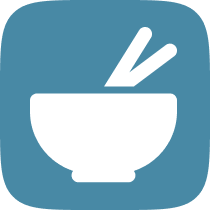At Cookery School Quest, our business model is centered around delivering premium culinary education in an accessible, flexible, and scalable format. The online cooking industry has experienced significant growth, driven by the demand for at-home learning, and our goal is to capitalize on this trend by offering high-quality courses that cater to a wide range of skill levels. Here is a detailed breakdown of our business model:
-
Value Proposition
Our core value lies in providing a comprehensive and engaging culinary learning experience. We cater to both beginners and experienced home chefs, offering a variety of cooking courses that range from basic kitchen skills to advanced culinary techniques. Our unique value proposition is based on three key pillars: expert instruction, personalized learning paths, and practical, hands-on cooking experiences. We strive to make learning enjoyable by offering a wide range of cuisines and flexible course formats that fit into busy lifestyles. -
Target Market
Our target market includes cooking enthusiasts, food lovers, and individuals who want to improve their culinary skills at home. This broad demographic includes:- Beginners looking for an introduction to cooking
- Home chefs seeking to elevate their culinary abilities
- Food hobbyists interested in exploring international cuisines
- Busy professionals who want to improve their cooking skills on a flexible schedule
- Aspiring culinary professionals looking for foundational knowledge
-
Revenue Streams
We operate on a mixed revenue model, ensuring both sustainability and growth:- Course Fees: Our primary revenue stream comes from the fees charged for our courses. These are priced according to the depth and duration of the course, with more advanced courses commanding higher fees.
- Subscription Model: We offer a subscription service that allows users to access a wider range of courses at a discounted rate. Subscribers also benefit from exclusive content, monthly cooking challenges, and early access to new courses.
- One-time Purchases: In addition to subscriptions, users can make one-time purchases for individual courses if they prefer not to commit to a longer-term subscription.
- Corporate Partnerships: We collaborate with corporate clients, offering tailored cooking classes as part of team-building events or corporate wellness programs. This generates additional revenue through bulk sales of classes.
- Affiliate Marketing: Through partnerships with kitchenware brands and food producers, we receive commissions on any affiliate products purchased through our platform.
-
Cost Structure
The key cost components of our business include:- Instructor Fees: Compensation for our expert chefs and instructors who create and deliver the courses.
- Content Production: Costs related to video production, editing, and content development to ensure high-quality, engaging learning materials.
- Platform Maintenance: Expenses associated with maintaining and upgrading our online platform to ensure a smooth user experience, including hosting, security, and software development.
- Marketing and Customer Acquisition: Investments in digital marketing, social media advertising, SEO, and influencer partnerships to attract and retain customers.
- Customer Support: Costs to maintain a dedicated support team for addressing user queries and providing technical assistance.
-
Marketing and Growth Strategy
We employ a multi-channel marketing approach to grow our brand and customer base:- Digital Marketing: A strong focus on social media platforms like Instagram, YouTube, and TikTok to engage with a community of food lovers through free content, cooking tips, and live cooking demonstrations.
- Email Marketing: A robust email campaign that targets potential customers with personalized course recommendations, special offers, and seasonal promotions.
- Influencer Collaborations: Partnering with popular food bloggers, YouTubers, and Instagram chefs to reach a larger audience and drive organic traffic to our platform.
- Referral Program: Encouraging existing users to refer friends and family by offering discounts or free access to courses as rewards.
-
Key Partnerships
Our business thrives through strategic partnerships with key stakeholders, including:- Culinary Experts: Collaborating with renowned chefs to create high-quality, informative courses.
- Food and Beverage Brands: Partnering with well-known kitchen equipment brands for cross-promotions and affiliate marketing.
- Technology Providers: Working with platform developers and content management teams to optimize the user experience and continuously improve our course offerings.
